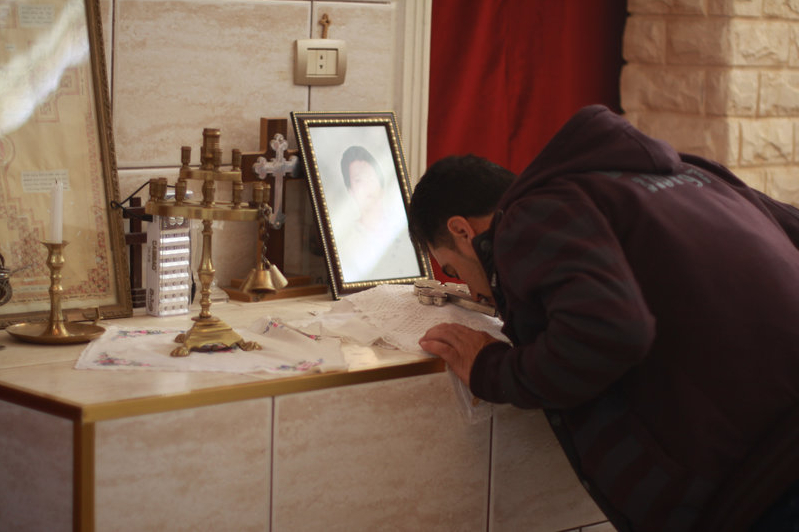
A year ago, Islamic State (ISIS) fighters came down from the Abdelaziz mountain to attack a string of small villages along the Khabur River Valley, which were mainly populated by Christians from the ancient Assyrian ethnicity. Assyrians trace their roots in the Middle East back more than 6,000 years. At least three villagers were killed and the rest were thrown into upheaval. Now, those Christian Assyrians who remain are trying to rebuild their community.
Eyewitnesses of the attack said the extremists destroyed their church, looted houses and captured about 300 people from several villages. The radicals separated their captives into men and women, and drove them for miles to the town of Shadadi, where they were held. Some prisoners were later moved to the Islamic State's Syrian stronghold of Raqqa.
One woman, Georgette Melki, whose son got killed during the attack, told NPR they were imprisoned but their treatment was not cruel. ISIS has raped, injured and killed thousands of people from the Yazidi religious minority and Shiite Muslims, whom it considers infidels.
"I don't know why they treated us like this," Melki said. "We didn't do anything. We were in our village, in our houses."
After months of negotiations between Assyrian clergy and militant representatives, NPR reports most of those captured were released. Terms of the deal haven't been disclosed but several people close to the negotiations stated ransoms were paid.
Although Assyrians have lived for millennia in an area now divided between Turkey, Syria and Iraq, there were none in the Khabur River Valley a century ago, reports NPR. In Tell Tamer, the largest settlement, the larger Church of Our Lady was built in the 1980s. It became these Assyrians' focal point, even as the Muslim - mainly Kurdish - population of the town grew and the Assyrians became a minority there.
Hundreds of families remained in the remote area, but the ISIS threat brought the community to the brink of extinction, said priest Bekos Ishaya.
Kurdish forces helped the Assyrians, and ISIS fighters were pushed out of the string of villages along the river. They never entered Tell Tamer, which was better protected.
But the experience, and subsequent attacks including a devastating bombing, drove hundreds to leave the area or the country, Ishaya told NPR. "There were only 450 [Assyrian] families in Tell Tamer before the crisis," he said. "Now there are 100."
Ishaya swears he will remain, and that God compared priests with light in the darkness. "The priest must be an example for the people, and he must be first in everything," he said.
He told NPR the people who left Syria "are not comfortable. I talk to them every day on the phone, our people. They are not happy."
They will only be happy, he insists, if they return to their roots.






